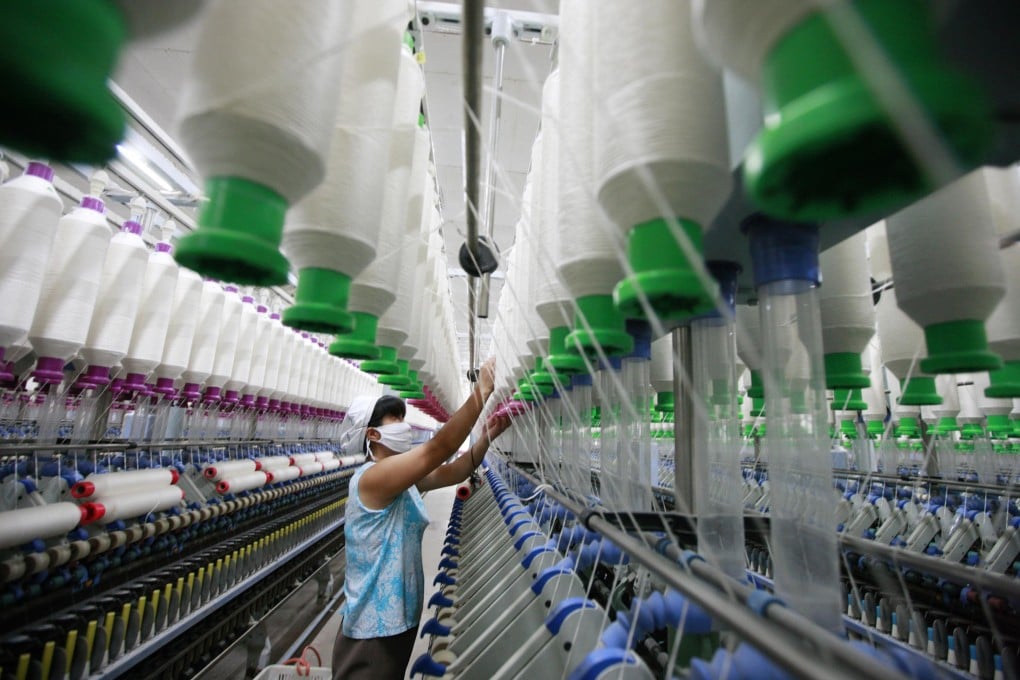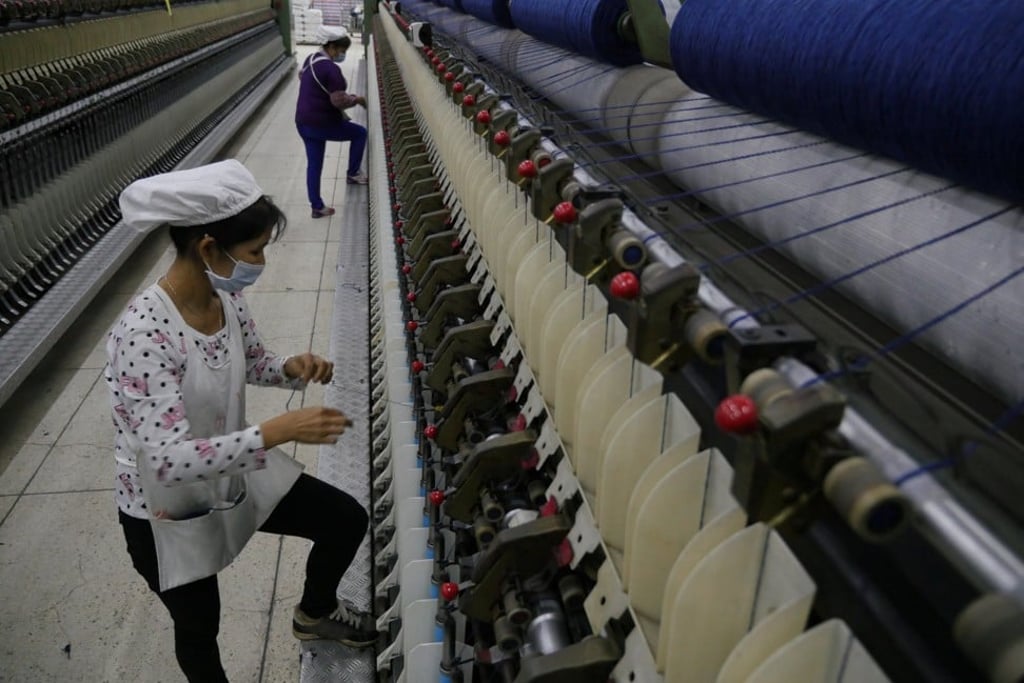As US-China trade talks continue, US slaps duties of up to 460 per cent on Chinese yarn for unfair subsidies
- US Department of Commerce imposes preliminary duties on Indian and Chinese imports, final decision due in September
- Duties of between 32 and 460 per cent on Chinese producers, while Indian producers will face duties of between 7.1 and 20.5 per cent

Chinese yarn producers are likely to suffer even if US and Chinese negotiators are able to reach a deal in coming weeks to end the trade war between the world’s two largest economies.
The US Department of Commerce (DoC) found on Monday that certain polyester textured yarn (PTY) from China and India was being unfairly subsidised. To offset the subsidies, the DoC slapped duties of between 32 and 460 per cent on Chinese producers, while Indian producers will face duties of between 7.1 and 20.5 per cent.
The DoC’s decision is preliminary and the duties could be reduced or even eliminated after further investigation.
PTY is a kind of synthetic yarn manufactured from polyester.

Following its preliminary investigation, Commerce assigned a duty of 32.04 per cent for PTY made by Fujian Billion Polumerization Fiber Technology Industrial Co, and a duty of 459.98 per cent on Suzhou Shenghong Fiber Co, as well as Suzhou Shenghong Garmant Development Co and its cross-owned companies.
A fact sheet released by the DoC said the preliminary duty for all other Chinese producers and exporters of PTY would be 32.04 per cent.